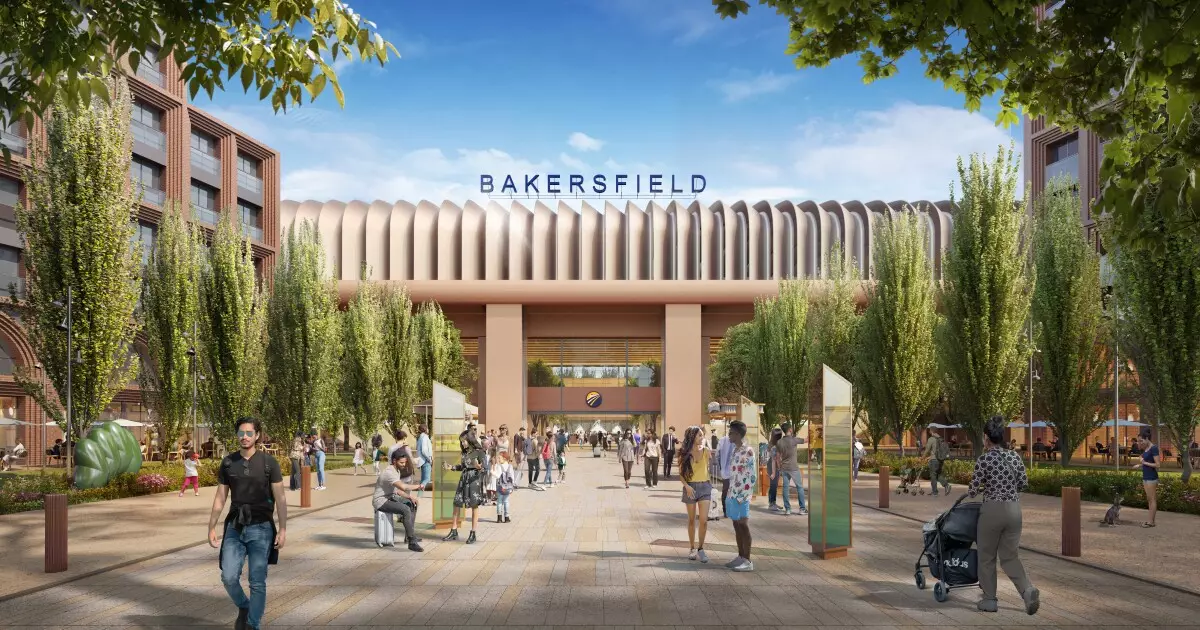The California High-Speed Rail (CHSR) project, initially touted as an ambitious leap into the future of transportation, has spiraled into a financial disaster. With a staggering $7 billion shortfall threatening the completion of the Central Valley segment, we are witnessing a classic example of government overreach, inefficiency, and misguided planning. Helen Kerstein of the state Legislative Analyst Office has sounded the alarm on the project, signaling a potential chasm that could deepen amid inflationary pressures and shakiness in federal funding.
This news is appropriately timed as it coincides with a broader national discourse questioning the effectiveness and accountability of large-scale public works projects. Can California’s example serve as a case study in what to avoid when attempting similar ventures? The implications are severe: not only is this a financial asphyxiation of taxpayer dollars, but it also signals a betraying of public trust in government projects that should, theoretically, benefit the very taxpayers financing them.
Federal Intervention: A Harbinger of Bad Planning
The Trump administration’s decision to rescind nearly $1 billion in federal contributions might be viewed as politically motivated; however, it epitomizes a much larger issue regarding accountability within the CHSR authority. Just last February, Transportation Secretary Sean Duffy initiated an evaluation of the authority, signaling dissatisfaction that runs deeper than party lines. This scrutiny is overdue as the CHSR, despite securing some $7.2 billion from federal grants since 2009, still finds itself in an untenable position.
The head of the high-speed rail project must now consider desperate measures, including potential public-private partnerships, to mitigate costs and deliver a project that is already years behind schedule. But what kind of message is being sent to potential private sector investors? It is one of mismanagement, unpredictability, and a crisis of credibility, which translates into an environment doubly inhospitable to innovation or collaboration.
Political Theatre vs. Real Solutions
Assemblymember Alexandra Macedo’s introduction of Assembly Bill 267 to redirect $1 billion in cap-and-trade funding from the high-speed rail to wildfire prevention serves as a disheartening reflection of priorities in California. The very premise of supporting high-speed rail seems increasingly out of step with the dire needs of communities ravaged by wildfires and other natural disasters. The arrogance displayed by movers in the CHSR project, snubbing critical community needs in favor of an overextended budget, begs the question: Why are we still pouring money into a questionable venture rather than addressing California’s urgent issues?
Furthermore, with the original projected cost of constructing rail from Los Angeles to San Francisco ballooning from an optimistic $34 billion in 2008 to an eye-popping estimate ranging from $100 billion to $128 billion today, we find ourselves grappling with a glaring transparency crisis. Financial accountability seems to elude those at the helm of the project, who now face an imperative to rectify past mistakes but remain curiously vague in their strategies.
Time to Rethink Our Priorities
Prominent voices like Assemblymember Macedo, who rightly argue that the government must redirect focus to pressing community needs, will hopefully catalyze a broader movement. It is high time for Governor Gavin Newsom to reassess his priorities; investing in a mismanaged high-speed rail project should be a last resort, not an ongoing commitment. The fantasy of high-speed trains cannot and must not overshadow the immediate necessities that residents face daily.
Each dollar spent on this out-of-control railway undermines our capacity to fund crucial services and infrastructure that deliver immediate results. As inflation grows and federal assistance remains uncertain, defending an indefensible project becomes a verbal exercise in futility rather than a commonsense approach to responsible governance. The California public deserves accountability and robust discussions around public funds—not shell games that rob them blind.
In a world where resources are finite, clarity and purpose must dictate fiscal decisions. California stands at a crossroads; the high-speed rail project has become a microcosm of what is wrong with government-funded initiatives. The time for reckoning has arrived; let’s hope our leaders grasp it before it slips through their fingers.

